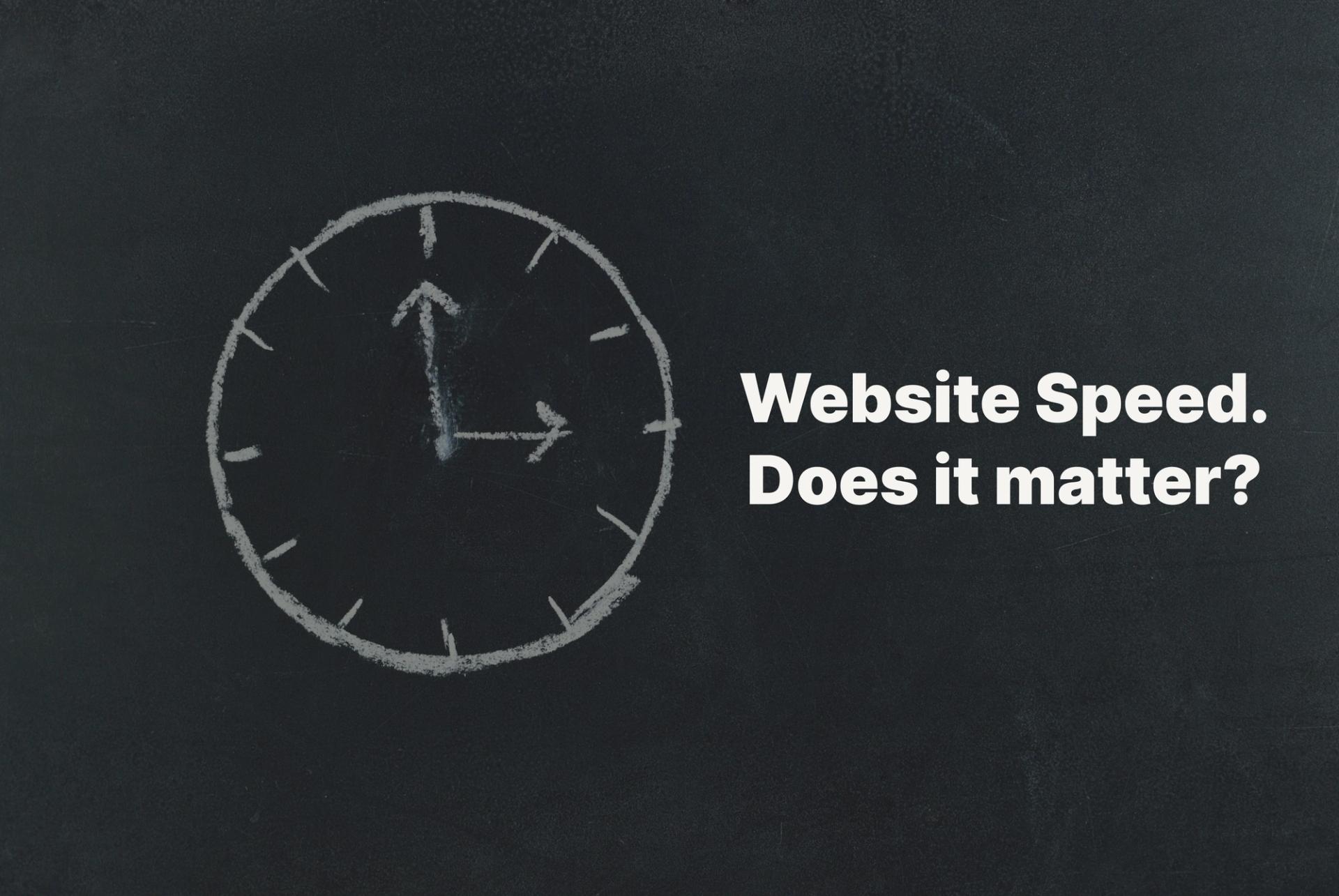Does Website Speed Matter?

Jake Gerding
May 5, 2023

In today's digital age, having a website is essential for businesses to attract and retain customers. However, it's about more than just having a website. Website speed has become a vital factor in determining the success of a website. In this article, we will discuss what website speed is, why it matters, things that might be hurting your website speed, ways to improve your website speed, how to check your website speed, and what a good website speed is.
What is website speed?
Website speed is the time it takes for a web page to load completely. This includes the time it takes for the web page to display all the text, images, and other elements. The speed of a website can vary depending on several factors, such as the website's size, server location, and the visitor's internet speed.
Why does it matter?
Website speed matters for several reasons, including user experience, search engine ranking on Google, and bounce rate.
1. User experience
When users visit a website, they expect to find what they’re looking for right away which means the website needs to load quickly. From the user's side of things, it can be frustrating for the site not to load quickly. If a website takes too long to load, visitors are more likely to leave the site and find an alternative. This can result in a poor user experience, which can negatively impact your brand’s reputation.
2. Bounce rate:
As mentioned previously, slow load time may lead users to leave the site quickly. A high bounce rate, where visitors leave the site quickly can negatively impact search engine rankings. There is a direct coloration to a high bounce rate and slow-loading pages as shown in the following case studies.
According to a study by Google, the probability of bounce increases by 32% as page load time goes from 1 second to 3 seconds. Furthermore, another study by Akamai Technologies found that 47% of users expect a web page to load in 2 seconds or less, and 40% of consumers will abandon a website if it takes more than 3 seconds to load.
According to a survey by Kissmetrics, 79% of shoppers on e-commerces who are dissatisfied with website performance are less likely to buy from the same site again. Furthermore, Radware's 2016 State of the Union for E-commerce Page Speed & Web Performance Report found that a one-second delay in page load time can lead to a 7% loss in conversions, an 11% drop in page views, and a 16% decrease in customer satisfaction.
3. Search engine ranking on Google:
Website speed is also a ranking factor for search engines. Google considers website speed as one of the signals used in their algorithm to determine search engine rankings. Websites that load faster tend to rank higher than slower websites.
Things that hurt website speed
Several factors can negatively impact website speed. Large image files take longer to load, significantly slowing down a website's performance. Unoptimized code and poor configuration of servers or hosting plans can also hurt website speed. Dynamic site generation, where pages are generated on demand, can also slow down a website's performance.
Ways to improve website speed
There are several ways to improve website speed. Optimizing images by compressing them can significantly reduce loading time. Tinypng.com is our go-to site for this! Enabling browser caching allows the website to store data in a visitor's browser, speeding up future page loads. Minimizing third-party plugins, minimizing unneeded scripts, and using static site generation can all improve website speed.
How to check your website speed
There are several online tools available to check website speed. Google's PageSpeed is a free tool provided by Google that analyzes your website's performance on both desktop and mobile devices. It provides a score out of 100 and gives suggestions on how to improve your website's speed. Another popular tool is Lighthouse. This is an open-source tool provided by Google that can be run directly in Google Chrome. It analyzes your website's performance and offers suggestions on how to improve page load times, accessibility, and other performance metrics.
Other popular tools include GTmetrix, a tool that analyzes your website's speed and provides a detailed report on how to improve performance. It also offers recommendations for optimizing images and code, among other things. Pingdon is a tool that tests your website's speed from multiple locations around the world and provides a detailed report on how long it takes for your website to load. It also offers suggestions on how to improve performance. Finally WebPageTest, this tool offers a range of performance testing options, including testing from different locations, browsers, and connection speeds. It provides detailed information on load times, page size, and other performance metrics.
What is a good website speed
A good website speed is subjective and can vary depending on the type of website and its purpose. However, as a general guideline, a website should load in 2-3 seconds or less. Websites that take longer than 3 seconds to load can experience higher bounce rates and lower search engine rankings.
On a tool that ranks your website on a scale of 100 like Google PageSpeed Insights, a good website speed score varies depending on the website's content and complexity. Generally, a score of 90 or above is considered excellent, while a score between 50 and 89 is considered average, and a score below 50 is considered poor.
Conclusion
In conclusion, website speed is a critical factor in the success of a website. Slow website speeds can lead to a poor user experience, high bounce rates, and lower search engine rankings, ultimately resulting in lost traffic and revenue. Therefore, it's crucial to prioritize website speed as part of your overall website strategy to ensure a positive user experience.
Do you need help with improving website speed? Here at Cosite, we can help! Contact us for a consultation.